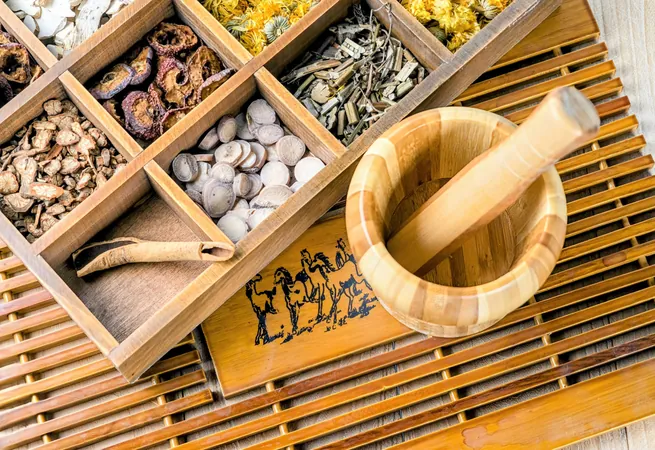
Groundbreaking Herbal Medicine Research Unveils New Hope for Dementia Treatment
2024-11-10
Author: Wei
Understanding Dementia's Complexity
Often wrongly perceived as merely a consequence of aging, dementia is a severe condition that affects both cognitive abilities and physical functions. A vast array of factors, from genetic predisposition to lifestyle choices, contribute to its onset. With the global population rapidly aging, the demand for innovative therapies to halt or slow down dementia progression has never been greater. A team from the Graduate School of Medicine at Osaka Metropolitan University is making remarkable progress in this search, exploring the wisdom of traditional Chinese medicine—a field rich with historical knowledge offering valuable insights into healing practices.
Herbal Medicine Offers Significant Promise
Focusing on the dried seeds of Ziziphus jujuba Miller var. spinosa, commonly used in Chinese medicine, researchers conducted experiments involving hot water extracts of these seeds on mice suffering from various illnesses, including Alzheimer's and Parkinson's diseases. The results have been astonishing, showcasing substantial cognitive and motor function improvements. In a particularly compelling study, the seeds, when ground into a powder, enhanced cognitive function in mice to levels surpassing that of the control group. This exciting discovery not only restored cognitive abilities but also appeared to mitigate the effects of cellular aging in older specimens, enabling them to perform on par with younger mice.
Uncovering Breakthroughs in Traditional Medicine
This isn't the first time the research team has tapped into traditional medicine for solutions. Previous studies utilizing Hawaiian herb mamaki and Chinese herb Acorus gramineus have also shown promise in improving memory and motor functions in dementia-prone mice models. Professor Takami Tomiyama from Osaka Metropolitan University expressed optimism that the research will pave the way for over-the-counter dementia prevention products for middle-aged and elderly populations. Published in the journal eLife, these findings signify a pivotal advancement in the pursuit of dementia treatments, validating the significance and potential of ancient healing practices when combined with modern science.
Merging Ancient Wisdom with Modern Science
The exploration of traditional herbal medicine presents exciting prospects at the crossroads of time-tested remedies and contemporary scientific inquiry. Unlike synthetic drugs that target singular molecular pathways, herbal remedies consist of complex mixtures of active compounds, allowing for holistic effects on multiple body systems. Research into Ziziphus jujuba seeds has stirred interest not just in academic circles but also among health enthusiasts seeking natural alternatives with minimal side effects.
The Future of Dementia Prevention
As researchers continue to delve into the world of herbal remedies, the possibility of these treatments transforming into widely accessible supplements for dementia prevention grows. If successful, these innovations could provide affordable preventative care options for at-risk populations, reshaping the future of brain health. This study from Osaka Metropolitan University serves as a crucial stepping stone, urging more scientists to explore time-honored practices that may yield solutions to contemporary health dilemmas. By rigorously validating the efficacy of traditional herbs, researchers are laying the groundwork for a new wave of dementia therapies that synergize the richness of traditional knowledge with the accuracy of modern science. The increasing attention and resources dedicated to uncovering effective treatments for dementia signal a hopeful future for millions worldwide.

 Brasil (PT)
Brasil (PT)
 Canada (EN)
Canada (EN)
 Chile (ES)
Chile (ES)
 España (ES)
España (ES)
 France (FR)
France (FR)
 Hong Kong (EN)
Hong Kong (EN)
 Italia (IT)
Italia (IT)
 日本 (JA)
日本 (JA)
 Magyarország (HU)
Magyarország (HU)
 Norge (NO)
Norge (NO)
 Polska (PL)
Polska (PL)
 Schweiz (DE)
Schweiz (DE)
 Singapore (EN)
Singapore (EN)
 Sverige (SV)
Sverige (SV)
 Suomi (FI)
Suomi (FI)
 Türkiye (TR)
Türkiye (TR)